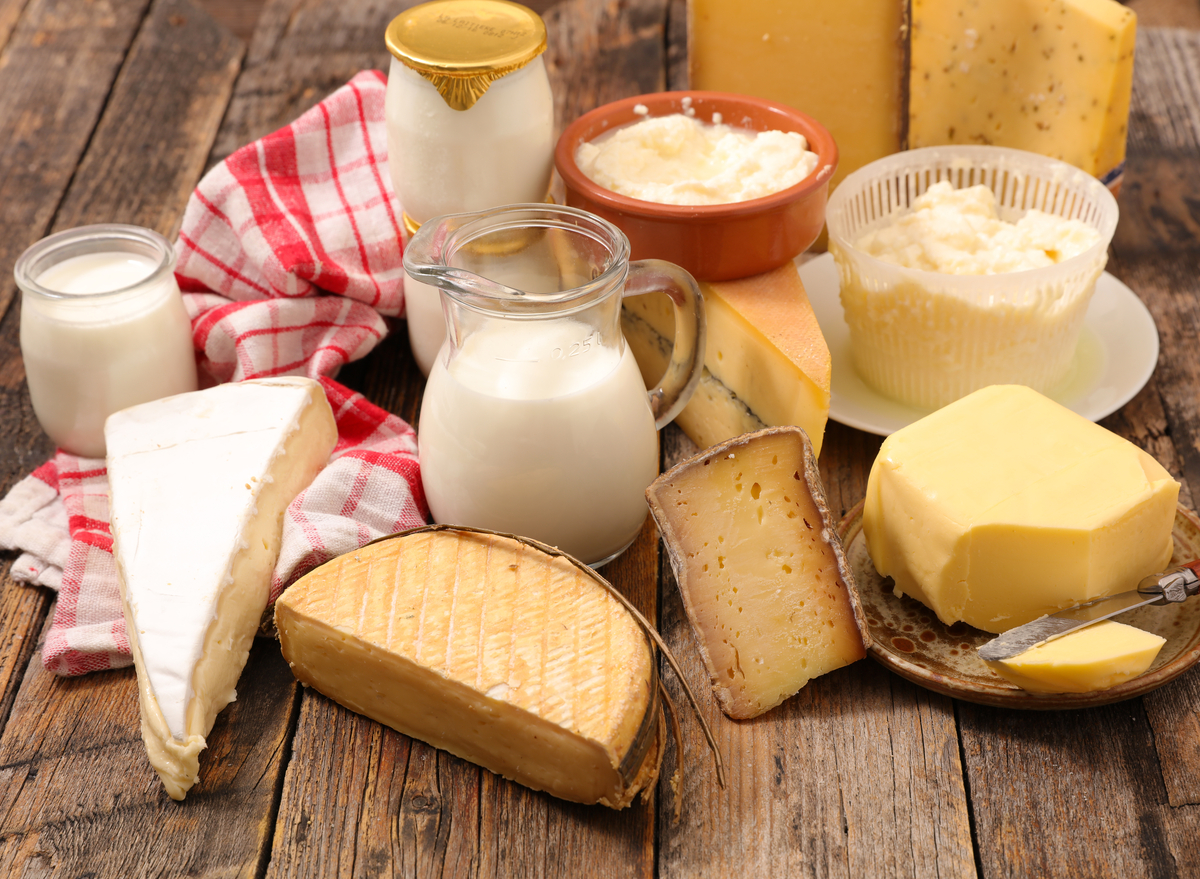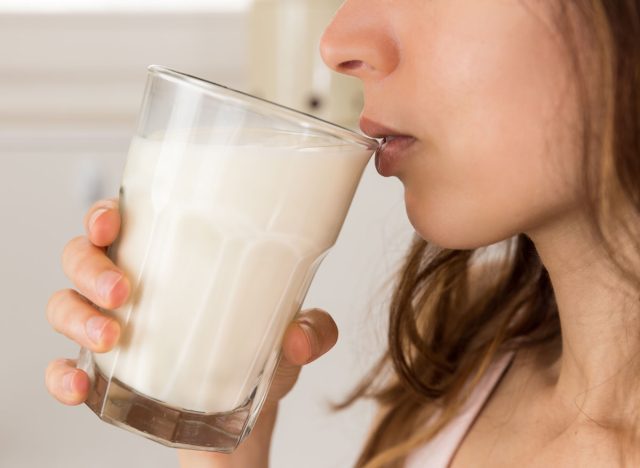These Dairy Products May Affect Your Heart Differently, Study Says

When it comes to milk, cheese, and butter, you might choose to consume each based on their taste or how they enhance a meal. However, you may also want to consider how each might be helping or harming your body. That’s because a new study has found that various dairy products affect your heart differently.
The study that was published in the European Journal of Preventive Cardiology involved taking a look at a cohort from the Western Norway B-vitamin Intervention Trial. During the analysis of 1,929 patients who were a mean age of 61.8 years old and dealt with stable angina pectoris, those behind the study noted various aspects related to the participants’ health, lifestyle habits, medication use, and diet including the consumption of dairy products.
When follow-ups were conducted with the patients, it was found that those who consumed more milk had a higher risk of both stroke and death. Those who regularly ate butter also had a higher risk of acute myocardial infarction (AMI) and death. However, patients who ate more cheese had a lower risk of AMI.

“This actually somewhat surprised me, especially since I’ve been encouraging clients to consider dairy and milk as part of their daily intake,” Catherine Gervacio, RD, a registered dietitian and contributor at Living.Fit, tells Eat This, Not That! “On the other hand, since dairy and milk have saturated fats and cholesterol, excess consumption can lead to cardiovascular disease and puts a CVD patient more at risk of mortality and stroke.”
As for the differences in dairy products, Gervacio notes that “the study did say that a higher intake of milk was associated with an increased risk of mortality and stroke, but more specific data as to how many increased servings have been taken by the participants in the study.”
“It has something to do with excess consumption in which cholesterol and saturated fat builds up in the body and cause CVD issues,” Gervacio adds.

“As for butter and cheese, butter is incredibly high in saturated fat, trans-fat, and cholesterol compared to cheese,” Gervacio explains. “In both 100-gram servings, butter has 51 grams of saturated fat, 3 grams of trans-fat, and 215 mg of cholesterol as compared with cheddar cheese with 19 grams, 1 gram, and 100 mg, respectively.”
When it comes to what you need to be aware of when it comes to different dairy products, Gervacio points out that “it is important to only know how much you should be eating and what kind of dairy is needed for your body.” While this is key for everyone, she adds that it “is especially true among people with heart diseases, lipid problems, and other metabolic diseases.”
“Dairy and milk should not be in a bad light. It does provide tremendous benefits to health, but knowing the right way to choose the kind and amount of it according to a person’s profile can still improve overall health,” Gervacio advises.








